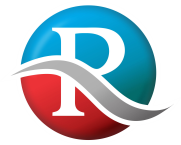
What is RIASEC?
The RIASEC model, developed by John L. Holland, is a widely recognized and influential framework for understanding individual preferences and interests in the context of career choices. Holland, a psychologist, introduced the model in the 1950s, and it has since become a cornerstone of career counseling and vocational psychology.
Origins and Development of the RIASEC Model:
John Holland’s work on vocational preferences emerged from his early experiences as a career counselor. He sought to create a systematic way of understanding and categorizing the diverse interests and career choices of individuals. The result was the development of the RIASEC model, where each letter represents a specific personality type.
Holland’s theory was influenced by the idea that people and work environments could be classified into six general categories based on similarities in interests and preferences. The model reflects the notion that individuals are most satisfied and successful in careers that align with their dominant personality types.
The Six Personality Types in the RIASEC Model:
Let’s delve into each of the six personality types represented by the RIASEC acronym:
1. Realistic (R):
- Individuals with a Realistic personality are practical, down-to-earth, and enjoy hands-on activities. They prefer working with tools, machines, or physical objects. Careers in carpentry, mechanics, or agriculture often appeal to those with a Realistic personality.
2. Investigative (I):
- People with an Investigative personality are analytical and enjoy working with abstract ideas. They are naturally curious, excel in research-oriented tasks, and may pursue careers in scientific fields, such as physics or biology.
3. Artistic (A):
- Those with an Artistic personality are creative, imaginative, and have a strong appreciation for aesthetics. They thrive in environments that allow for self-expression through various forms of art, including visual arts, performing arts, or writing.
4. Social (S):
- Individuals with a Social personality are outgoing, empathetic, and enjoy helping others. They are often drawn to professions that involve interpersonal relationships and community engagement, such as counseling or social work.
5. Enterprising (E):
- People with an Enterprising personality are ambitious, assertive, and enjoy leadership roles. They are often entrepreneurial and seek opportunities to influence and persuade others, making them well-suited for careers in sales, management, or entrepreneurship.
6. Conventional (C):
- Those with a Conventional personality are detail-oriented, organized, and enjoy working with data and processes. They thrive in structured environments and are often drawn to roles that involve tasks like organizing, planning, and record-keeping, such as accounting or administrative positions.
Each personality type reflects a set of preferences, values, and interests that shape individuals’ choices in education, careers, and other life domains.
Application of the RIASEC Model in Career Development:
The RIASEC model has been widely used in career development and vocational counseling for several decades. Career assessments, such as the Strong Interest Inventory, are often based on this model to help individuals identify suitable career paths based on their interests and preferences.
1. Career Assessments:
- Career assessments based on the RIASEC model help individuals explore and understand their dominant personality types. These assessments often involve questionnaires that assess interests, values, and work preferences, providing individuals with insights into potential career paths.
2. Career Counseling:
- Career counselors use the RIASEC model to guide individuals in making informed career decisions. By identifying a person’s dominant personality types, counselors can suggest careers that align with their interests and help create personalized career development plans.
3. Educational Guidance:
- The model is also applied in educational settings to assist students in making decisions about academic majors and future career paths. Understanding one’s personality type can guide students in selecting courses and extracurricular activities that align with their interests.
4. Workplace Development:
- In the workplace, the RIASEC model is used for team-building and career development initiatives. Understanding the diverse personality types within a team can foster collaboration and help employees find roles that resonate with their strengths and preferences.
Critiques and Considerations:
While the RIASEC model has proven to be valuable in career development, it is not without its critiques and considerations. Some key points include:
1. Simplification of Human Personality:
- Critics argue that the model simplifies the complexity of human personality by categorizing individuals into six distinct types. In reality, personality is diverse and can be influenced by various factors beyond these categories.
2. Fluidity of Interests:
- Individuals may demonstrate a range of interests and preferences that go beyond a single personality type. Human interests can evolve over time, and the model may not capture the dynamic nature of personal development.
3. Cultural and Gender Bias:
- The RIASEC model was developed in Western cultural contexts, and its applicability in non-Western cultures has been questioned. Additionally, some critics argue that the model may exhibit gender biases in its descriptions of certain personality types.
4. Limited Consideration of Other Factors:
- The model primarily focuses on interests and preferences but may not adequately address other crucial factors influencing career choices, such as values, aptitudes, or personal circumstances.
Conclusion:
In conclusion, the RIASEC model provides a valuable framework for understanding individual preferences and interests in the context of career choices. Its application in career development, counseling, and education has helped countless individuals make informed decisions about their academic and professional paths. However, it is essential to approach the model with an awareness of its limitations and consider it as one of many tools in the broader landscape of understanding human personality and career development. As individuals navigate their careers, the RIASEC model can serve as a starting point for exploration and self-discovery, offering valuable insights into the alignment between personal interests and potential career
